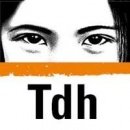Consultant: Evidence-based need assessment
الوصف الوظيفي
لقد انتهت صلاحية هذه الوظيفة في 2018-12-06
تصفح أحدث الوظائف
عند التقدم لاية وظيفة عن طريق الانترنت، لا تقم بإعطاء معلومات بطاقة الأعتماد او أية معلومات بنكية / مالية لصاحب عمل. نصيحة من جوبس لحمايتك :
آخر الوظائف المعلنة بواسطة
Terre des hommes - Switzerland
المسمى الوظيفي
تاريخ النشر
Program Coordinator - (Head of Programme)
القدس, رام الله والبيرة
12, Jun
Project Manager
قطاع غزة
27, Mar
Senior Grant Officer
القدس
27, Feb
MEAL Officer
القدس
11, Feb
Logistics Officer
القدس
10, Feb
Communication Officer
القدس
5, Feb
Senior Grant Officer
القدس
12, Dec, 2024
Logistics Assistant
قطاع غزة
2, Dec, 2024








